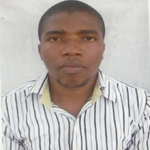
The Department’s objectives are geared towards the realization of national needs and aspirations. Graduates from the Electrical/Electronics Engineering Department are expected among other things to:
The training philosophy of the department is in line with the institutional mandate of the College of Engineering and Engineering Technology of Michael Okpara University of Agriculture, Umudike, tailored to produce highly skilled professional manpower in Electrical/Electronics Engineering. The graduates of the Engineering training program would be sufficiently grounded in the basic sciences and Engineering knowledge to cater for the Electrical/Electronics Engineering problems of the nation. They are envisaged to be in the fore-front of indigenous technology development of the nation, predicated on sound theoretical framework, inter-woven with sufficient practical exposure. The practical content of their training will be sufficiently adequate to make them self-reliant and job creators.The above philosophy entails:
The above process involves among other things, lectures, tutorials, laboratories, Engineering/Technology workshop practices, design works and industrial attachments.
